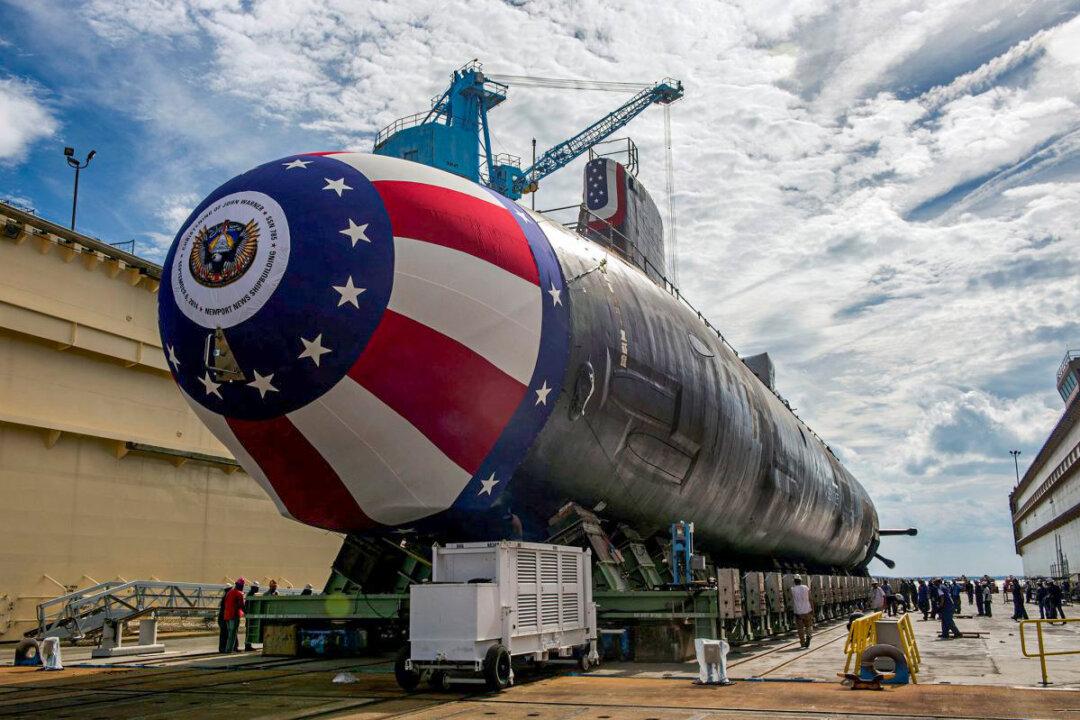The Biden administration’s new supplemental funding request includes billions of dollars to counter the malign influence of communist China throughout the world and to strengthen the United States’ naval forces.
Of the mammoth $106 billion request, the administration is seeking $4 billion to provide military training to regional partners in the Indo-Pacific and provide long-term financing options abroad as an alternative to China’s predatory lending schemes.




